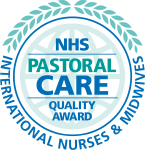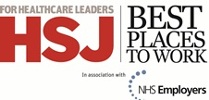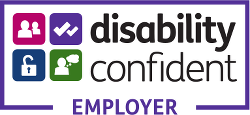Trac proudly powers the recruitment for
Greater Manchester Mental Health NHS Foundation Trust

About
Greater Manchester Mental Health (GMMH) Foundation Trust employs over 7000 members of staff, who deliver services from 122 locations.
We provide inpatient and community-based mental health care for people living in Bolton, the city of Manchester, Salford, Trafford and the borough of Wigan, and a wide range of specialist mental health and substance misuse services across Greater Manchester, the north west of England and beyond.
Greater Manchester is one of the world's most innovative, original and exciting places to live and work. From the beauty of the surrounding countryside to the heart of the vibrant inner city with great shopping, entertainment and dining options.
Wherever you go you will experience a great northern welcome with people famed for their warmth, humour and generosity.
Our people enjoy their work, have opportunities to learn and develop their skills and are encouraged to generate new ideas that improve care for our service users.
Contact
- Address
- Bury New Road
- Prestwich
- Manchester
- M25 3BL
- Contact Number
- 0161 938 5253
Senior Peer Support Worker
Closed for applications on:
Vacancy status: Closed
Closed for applications on:
Key details
Location
- Site
- Central Park
- Address
- Northampton Road
- Town
- Manchester
- Postcode
- M40 5BP
- Major / Minor Region
- Manchester
Contract type & working pattern
- Contract
- Fixed term: 12 months (1.6wte is funded for this post which equates to 2 x 0.8wte Senior Peer Support Workers. However, we will consider a minimum of 0.4wte (2 days) through to 1wte (5 days). Secondments would be considered with permission from line managers.)
- Hours
- Full time
- Part time
Salary
- Salary
- £26,530 - £29,114 Per annum pro rata
- Salary period
- Yearly
- Grade
- (Band 4)
Specialty
- Main area
- For Individuals who have lived experience of serious mental health problems
Job overview
The role of the Senior Peer Support Worker has been developed specifically for individuals who have lived experience of psychosis. The post holder will have experience of a peer support (PS) role and are able to support others. Let’s Talk 2, led by Dr Melissa Pyle and Professor Tony Morrison, builds on our track record of research on psychological interventions for people with psychosis by evaluating the possible benefits of a peer-delivered stigma intervention for people with experience of psychosis.
The Let’s talk intervention is underpinned by the principles of peer support. Peer relationships are viewed as partnerships that invite and inspire both parties to learn and grow. The intervention involves inviting conversations to explore stigma related concerns and experiences, develop affirming self-beliefs, and learn skills to make personal and empowered disclosure decisions. The intervention involves up to 16 sessions over 4 months. Training and support will be provided including supervision from a peer specialist and a research psychologist. This is a unique opportunity to contribute to the development of evidence regarding the effectiveness of semi-structured peer support. For this post we have 1.6wte funded and we will consider offering a minimum of 0.4wte (2 days per week) through to 1wte (5 days per week).
Advert
Through sharing wisdom informed by experience and knowledge the post holder will:
Support and promote recovery as a user led concept
Emphasise hope and optimism, individual aspirations and goals
Value experiential learning
Focus on strengths rather than deficits
Foster collaboration between those who need support and those who support them as an alternative to coercion
Enable and promote autonomy and self-management
There is an expectation that the Senior peer support worker will be a key contributor in the on-going development of peer support worker roles at the Trust including such things as training programmes and evaluations.
The post holder will embrace the core values of the organisation. These principles will recognise the need to:
Promote safe practices
Value the aims of service users
Work in partnership and offer meaningful choice
Be optimistic about the possibilities of meaningful change
Value social inclusion
Working for our organisation
Greater Manchester Mental Health (GMMH) Foundation Trust employs over 7,000 members of staff, who deliver services from more than 122 locations.
We provide inpatient and community-based mental health care for people living in Bolton, the city of Manchester, Salford, Trafford and the borough of Wigan, and a wide range of specialist mental health and substance misuse services across Greater Manchester, the north west of England and beyond.
Greater Manchester is one of the world's most innovative, original and exciting places to live and work. From the beauty of the surrounding countryside to the heart of the vibrant inner city with great shopping, entertainment and dining options.
Wherever you go you will experience a great northern welcome with people famed for their warmth, humour and generosity.
Our people enjoy their work, have opportunities to learn and develop their skills and are encouraged to generate new ideas that improve care for our service users.
Detailed job description and main responsibilities
Help individuals identify their own achievable and meaningful recovery
goals and set recovery objectives, drawing on your mutual resources as
peers and utilising a semi-structured approach to support people
overcome internalised stigma and aid empowered decision making
regarding mental health disclosure focused peer support, and
experience.
To model personal responsibility, self-awareness, self-belief, self-advocacy, and hopefulness via the telling of own recovery story to inspire and instil confidence in peers.
To share and promote coping, self-help, and self-management techniques within the peer relationship.
To support service users to identify and overcome fears and within a relationship of empathy, trust and honesty, challenge negative self-talk.
To facilitate access to community groups and networks that enable service users to participate in community activities, in order to maximise opportunities for taking on socially valued roles and positive identity.
Act as a positive role model showing professional and caring attitudes and behaviour towards other multi-disciplinary team members, service users and carers.
Have a focus on the rights of service users at all times.
Work in a way that acknowledges the personal, social, cultural and spiritual strengths and needs of the individual.
Uses own initiative, personal experience and job-related training in deciding on the approach and interventions required when working with a service user in delivering peer support, although supervision is available.
Attend multi-disciplinary team meetings to promote the use of self-directed recovery tools.
Attend clinical review and supervision meetings to feedback progress on recovery goals.
To raise awareness of recovery language with all staff and partners by modelling positive strengths based, non-discriminatory, non-jargon, non-medicalised language in all areas of work.
Support other members of the multi-disciplinary team in promoting a recovery orientated environment and in identifying recovery focused activities imparting information/education as required.
To provide a consultation point for colleagues and agencies regarding service user matters and the trusts values.
Attend local and central team meetings to ensure the voice of service user experience is central to team culture.
To meet with partner agencies to seek opportunities to establish new care pathways to clinical care and wider social support.
To ensure effective communications of service user matters and promote the voice of service users in trust and team communications.
To share ideas about ways of achieving Recovery goals, drawing on personal experiences and a range of coping, self-help and self-management techniques.
To participate in quality assurance measures, promoting uptake of friends and family tests, satisfaction questionnaires and other measures that review the effectiveness of service delivery. Providing genuine constructive feedback and support for continued improvement of the service.
Actively seek advice and recommendations from service users through a range of formats and developing appropriate responses to feedback.
To participate in delivering service user perspectives in response to national guidelines adopted by the service.
Please see attached job description and person specification
Staff benefits
- Pay Enhancements – 30% additional for Evenings (8pm onwards) and Saturdays and 60% additional for Sundays and Bank holidays.
- 27 days annual leave plus bank holidays rising to 29 after 5 years and 33 days after 10 years
- Excellent pension
- Cycle to work scheme
- Salary sacrifice car scheme
- Wellbeing programme
- Blue Light Card Discounts
Important Information about working for GMMH:
All positions within the Trust are subject to satisfactory pre-employment checks, for further information on the checks required please visit the NHS Employers website www.nhsemployers.org
The Trust mandates all post holders who require a DBS for their role to subscribe to the DBS Update Service. You will be required to enrol for this service for a fee of £16 per year and maintain registration throughout your employment with GMMH.
Applicants are encouraged to apply for posts at Greater Manchester Mental Health who have direct experience of mental health, learning disability or drug and alcohol services either as a service user or a carer.
The Trust is also committed to safeguarding children, young people and vulnerable adults and requires all staff and volunteers to share this commitment.
We are aspiring to ensure our workforce is representative of the diverse communities that we serve, and we are strongly committed to removing barriers to employment for candidates from under-represented groups, for example BAME, Disabled and LGBT+ communities. If you would like to have an informal chat about the recruitment process for this role or would value some additional support, we’d love to hear from you.
Use of Artificial Intelligence (AI) when writing job applications
A candidate may utilise the help of AI when writing job application. The assessment of an application is made on its entirety and most times AI-generated content does not fully grasp the context and requirements of the job one applies for thus producing inaccurate and misleading information, especially in the supporting statement section of an application that can lack real life examples of one’s achievements, success and challenges.
We have added a disclaimer to our application process advising that the use of AI is monitored. GMMH reserves the right to follow up with a candidate at the interview on specific responses and those examples used in the supporting statement to explore it further.
Sponsorship
We are proud to be an approved sponsor for the Skilled Worker visa. Applications from individuals who require sponsorship will be considered alongside all other applications. Please be aware that not all roles are eligible for sponsorship. You can review the list of eligible roles and salary requirements on the UK Government’s website – click here.
If you are offered a role with us and you require sponsorship, we will check your eligibility in line with the information on the above website. Your offer of employment could be withdrawn if the role is not eligible for sponsorship, and you are not otherwise able to evidence your right to work in the UK.
The Home Office introduces new changes from 22/07/2025 that impact the health and care sector, you may wish to familiarise with it here.
Do you have experience outside the NHS?
We want to attract and retain people with diverse skills and experience, to deliver inclusive healthcare services to our communities.
We will consider relevant experience outside the NHS to calculate your salary on appointment. Please contact our Recruitment Team for more information.
**Please note, this vacancy may be closed at any time if sufficient applications have been received**
Applicant requirements
Person specification
Education/Qualifications
Essential criteria
- Recognised competency-based qualification in a relevant subject (e.g. NVQ, B-TEC QCF, Apprenticeship), or equivalent demonstrable experience
Desirable criteria
- Willingness to undertake further training in line with the development of the SPSW role
Experience
Essential criteria
- Lived experience of psychosis and having received mental health services
- Evidence of pro social behaviour (e.g empathy, actions that benefit others)
- Experience of working in a relevant peer support role.
Desirable criteria
- Experience of working in a team
- Experience of training, teaching, coaching/mentoring others
- Experience of using a range of self-management or recovery tools and Techniques
Skills & Knowledge
Essential criteria
- Self-sufficient: able to work in an independent and autonomous fashion handling a diverse caseload
- Seeks to continuously improve their approach, using reflective learning and suggesting ideas to their first line manager.
- Role model and support others to develop.
Desirable criteria
- Supervisory/Management skills, e.g. wellbeing management; audits; performance management; goal setting; mentoring.
- Experience of working with individuals using motivational techniques.
Further details / informal visits contact
- Name
- Melissa Pyle
- Job title
- Senior Research Fellow
- Email address
- [email protected]
No longer accepting applications
Sorry, this vacancy is no longer accepting applications.
You can search for similar jobs on the employer's job board, or visit our national jobs board Health Jobs UK.







